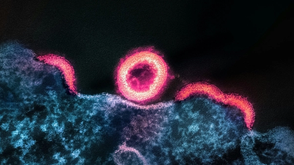Breakthrough Science
Open call for applications: Critical Mineral Substitutes for the Green Transition
Are you a scientist developing breakthrough materials and technologies that reduce our dependence on critical minerals for the net-zero transition?
EQT Foundation is seeking to award €25,000 to €100,000 in catalytic, non-dilutive funding to research projects with high-risk, high-impact, deep tech approaches to substituting or drastically reducing the use of critical minerals in key climate technologies.
The deadline has passed. Thank you for your interest.


Speeding up the granting process to be as scientist-friendly as possible.
Unlike traditional granting, which can take months to approve, fast granting speeds up the process so researchers and innovators can get the money they need and make progress on breakthrough solutions as soon as possible.
About
The green transition depends on technologies like batteries, electric motors, power electronics, photovoltaics, and electrolyzers. Many of these rely on a small set of critical and strategic raw materials whose supply is concentrated, volatile, and often environmentally and socially costly.
Scaling these technologies to net-zero levels without alternative materials and designs risks bottlenecks, higher costs, and slower decarbonization. This call aims to support breakthrough science that replaces or radically reduces critical minerals use, while improving performance, cost, and sustainability.
EQT Foundation is seeking to award €25,000 to €100,000 in catalytic, non-dilutive funding to research projects with high-risk, high-impact, deep tech approaches to substituting or drastically reducing the use of critical minerals in key climate technologies.
Information
Grant size
€25,000 to €100,000
Deadline
February 25, 2026 at 11:59pm CET
We are particularly interested in translational proposals focused on:
- Substitutes for critical minerals in energy storage and conversion
Breakthrough materials, chemistries, and device architectures that avoid or materially reduce reliance on critical minerals in batteries and related electrochemical systems - while remaining manufacturable and competitive. Examples include:- Earth-abundant battery chemistries (e.g., sodium-, potassium-, magnesium-, calcium-, sulfur-, silicon-, organic-, or flow-based systems) that reduce reliance on lithium, cobalt, nickel, manganese, graphite, and other constrained inputs
- Low-/no-cobalt cathode innovations, low-/no-graphite anode innovations, alternative current collectors/binders/electrolytes that reduce constrained materials
- Degradation, safety, and fast-charge solutions that enable adoption of substitute chemistries in relevant use cases (grid, light EV, heavy transport)
- Rare-earth-free magnets and machine designs
Materials and device innovations that remove or significantly reduce rare earth elements in magnets and machines central to electrification. Examples include:- New permanent magnet materials based on abundant elements with competitive coercivity/temperature stability
- Novel motor/generator architectures (e.g., switched reluctance, advanced induction, hybrid designs) that reduce rare-earth dependence without unacceptable efficiency/weight penalties
- Scalable processing/manufacturing approaches enabling rare-earth-lean magnet production and integration into motors/generators
- Earth-abundant materials for solar, power electronics, and grid technologies
Substitutes for scarce/critical inputs in photovoltaics, power electronics, and grid infrastructure. Examples include:- PV absorber/contact/interconnect layers that reduce reliance on constrained elements (and include stability + manufacturability considerations)
- Alternative semiconductor/interconnect/dielectric materials, packaging, and thermal management innovations that reduce constrained inputs while meeting reliability targets
- Conductor/cable and grid-component innovations that materially improve material efficiency, longevity, and recyclability (beyond incremental tweaks)
- Circular substitutes: recycling, reuse, and “virtual” substitution
Technologies that displace virgin critical mineral demand by producing spec-grade secondary materials (or functionally equivalent components) through novel science and engineering - not logistics or marketplaces. Examples include:- Step-change recovery, purification, and re-manufacturing from end-of-life batteries, magnets, electronics, catalysts, industrial scrap, and by-products
- Novel separations and process chemistries (e.g., electrochemical separations, selective leaching, new sorbents/ion-exchange, low-waste regeneration, closed-loop reagents)
- Hardware innovations (e.g., sensor-driven sorting, robotics disassembly, inline analytics, modular processing) that handle real feedstock variability and contaminants
- Demonstrated pathway to yield/purity/throughput/cost targets competitive with primary production
Out-of-scope proposals include, but are not limited to:
- Exploration/extraction/expansion of mining without a clear substitution or demand-reduction angle
- Incremental optimizations without a step-change in substitution, recyclability, or environmental impact
- Pure policy/market/macro analysis without concrete technology development
- Basic science without a credible translational pathway to a substitute material/device/process
- Generic AI/software, supply-chain optimization, trading, or finance tools not tied to specific substitution outcomes
- Projects unrelated to climate, energy, or industrial decarbonization
Updates from EQT Foundation
Do You Want to Know More?
Get in touch with us and take the first step to successive growth.
Get the Latest Updates
Subscribe to EQT Foundation's press releases and updates.




